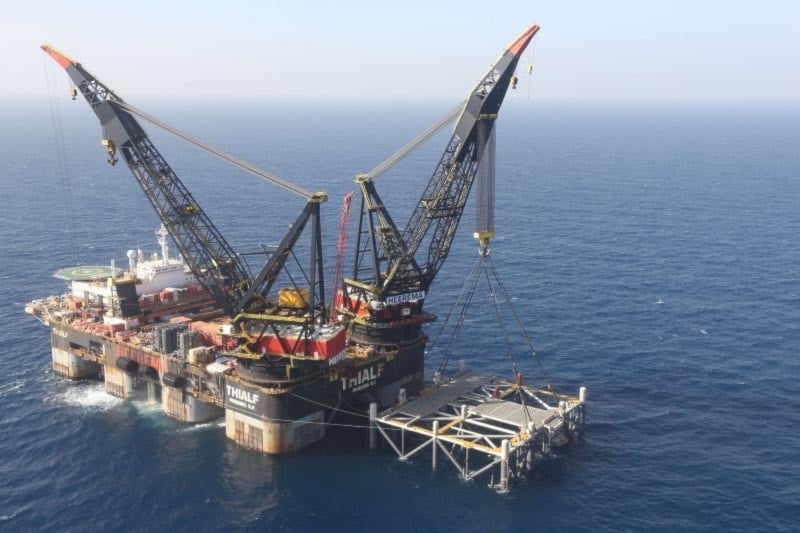European gas prices rise amid Israeli-wrought tensions, LNG risks
The Leviathan shutdown and Hormuz risks fuel spot market pressure.
-

An oil platform in the Leviathan natural gas field, in the Mediterranean off the occupied Palestinian coast (AP)
European natural gas prices saw a notable uptick on Monday as escalating tensions between the Israeli occupation and Iran raised concerns over potential disruptions to regional energy flows. The Dutch TTF benchmark, the leading European gas futures contract, rose 1.7% in early trade, reaching €38.53 per megawatt hour.
According to analysts at ANZ Research, while Iran does not significantly export natural gas, the geopolitical risk is tied to the potential impact on global LNG routes.
“Iran doesn’t export any meaningful supplies of natural gas, as its gas operations meet its domestic requirements,” the analysts stated. “However, the Strait of Hormuz is an important waterway for LNG. It handles about a fifth of the world’s LNG supply, mostly from Qatar.”
The Strait of Hormuz remains one of the most sensitive maritime chokepoints globally. Any disruptions due to heightened military activity or retaliatory actions involving Iran could threaten LNG flows from the Gulf, particularly from Qatar, the world’s top LNG exporter.
Market watchers are growing increasingly cautious, with many citing the risk premium attached to maritime energy routes as a key factor in the price spike.
'Israel' halts Leviathan gas production amid crisis
In a related development, the Israeli occupation has reportedly shut down production at its largest natural gas field, Leviathan, due to the war it waged against Iran. The field is a critical supplier of LNG to neighboring Egypt. The decision to halt operations adds further uncertainty to already tight regional energy balances.
Analysts warn that the shutdown at Leviathan could prompt Egypt to step up its purchases on the LNG spot market in order to meet domestic demand.
This shift could tighten available supply globally, particularly in Europe, which remains sensitive to any new strain on LNG availability.
With the energy markets already on edge amid a volatile geopolitical landscape, any further deterioration in regional stability could amplify disruptions and drive prices higher.

 2 Min Read
2 Min Read









